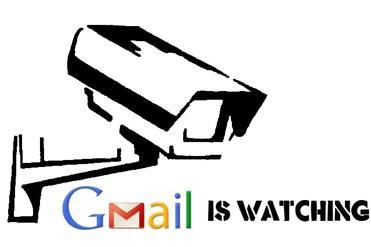 NEWS
NEWS
 NEWS
NEWS
 NEWS
NEWS
![]() Will using an online service mean that you’re willingly surrendering your privacy? It shouldn’t, but if the Consumer Watchdog’s evidence against Google is to be believed, then we shouldn’t expect our privacy to be honored.
Will using an online service mean that you’re willingly surrendering your privacy? It shouldn’t, but if the Consumer Watchdog’s evidence against Google is to be believed, then we shouldn’t expect our privacy to be honored.
The Consumer Watchdog has just published a 39-page motion filed by Google, in which the search giant was hoping that allegations regarding them snooping around emails to deliver more targeted ads would be dismissed.
“Just as a sender of a letter to a business colleague cannot be surprised that the recipient’s assistant opens the letter, people who use web-based email today cannot be surprised if their communications are processed by the recipient’s ECS [electronic communication service] provider in the course of delivery. Indeed, ‘a person has no legitimate expectation of privacy in information he voluntarily turns over to third parties,’” read a part of the statement.
With that statement, is Google basically admitting that it is looking at emails, whether or not the senders are Gmail users or not? It seems there’s just no escaping Google’s watchful eyes.
“Google has finally admitted they don’t respect privacy,” said John M. Simpson, Consumer Watchdog’s Privacy Project director. “People should take them at their word; if you care about your email correspondents’ privacy, don’t use Gmail.”
But is Google’s reason valid? Google is essentially a service, much like the Post Office. When you use the Post Office, you don’t expect them to open your package or letters, right? You expect them to deliver it to the address marked on the envelope, or if you have a mail or package coming in, you expect to receive it in one piece, not opened and having been tampered with. So Google, as a service, should also be providing that same level of privacy, surely?
Perhaps, but Google doesn’t consider itself to be a traditional post office. Rather, it compares itself to a recipient’s assistant. But this is wrong on so many levels – first, because by saying that Google is accusing assistants of being snoops, when that just isn’t true. If an assistant did that, I’m pretty sure they would be fired for opening their boss’ letters. Second, Google is a service, they are the ones who make sure recipients get their emails, and that senders are able to send emails – but they shouldn’t be snooping around and checking the content of the emails. That’s just not right.
“Google’s brief uses a wrong-headed analogy; sending an email is like giving a letter to the Post Office,” said Simpson. “I expect the Post Office to deliver the letter based on the address written on the envelope. I don’t expect the mail carrier to open my letter and read it. Similarly when I send an email, I expect it to be delivered to the intended recipient with a Gmail account based on the email address; why would I expect its content will be intercepted by Google and read?”
Simpson has a point, but before you go and torch Google to the ground, if you read the company’s Privacy Policy (admittedly, few have done so), you’d know that the search giant has always said it’s watching your every move. By agreeing to its Terms of Service, users really can’t really complain, because they have willingly given their consent to Google’s snooping.
“We use the information we collect from all of our services to provide, maintain, protect and improve them, to develop new ones, and to protect Google and our users. We also use this information to offer you tailored content – like giving you more relevant search results and ads,” a part of Google’s Privacy Policy stated.
So what do you need to do to escape Google? Well, you could just quit using Google’s services altogether. But that would really mean every single service it offers – users can’t choose to abandon just Gmail, because so long as you are using any of its services, such as Search or Google+, it’ll still have ways of tracking you, knowing what you’re up to and pushing annoying ads your way.
Still, though Google has basically admitted that they are snooping on people who use their services, even when you just receive an email from someone that’s using Gmail, the search giant is still firm on its stance that they they take users’ privacy seriously, claiming that the ‘snooping’ allegations just aren’t true.
“We take our users’ privacy and security very seriously; recent reports claiming otherwise are simply untrue. We have built industry-leading security and privacy features into Gmail — and no matter who sends an email to a Gmail user, those protections apply,” Google said in an email.
So who are we to believe? Google or the Consumer Watchdog? I’d go for the latter. Why? Because Google is doing a really good job of pushing targeted ads, and if you’ve been using Google Docs, if you open the Research Tab, even if you don’t type anything on the Search bar, it automatically gives you related ads based on the topic you are writing. And that’s just too much to be a coincidence…
Support our mission to keep content open and free by engaging with theCUBE community. Join theCUBE’s Alumni Trust Network, where technology leaders connect, share intelligence and create opportunities.
Founded by tech visionaries John Furrier and Dave Vellante, SiliconANGLE Media has built a dynamic ecosystem of industry-leading digital media brands that reach 15+ million elite tech professionals. Our new proprietary theCUBE AI Video Cloud is breaking ground in audience interaction, leveraging theCUBEai.com neural network to help technology companies make data-driven decisions and stay at the forefront of industry conversations.